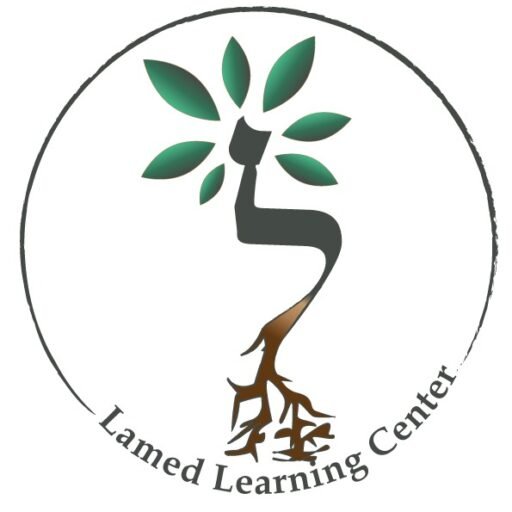
People are attracted to causes. Charities, fighting diseases, and conquering hunger are some of the many causes that people are attracted to. People are also drawn to form communities amongst people who have similar goals or values.
Rabbi Lord Jonathan Sacks writes “What Moses had to do after the Golden Calf was Vayakhel – turn the Israelites into a kehillah, a community. He did this in the obvious sense of restoring order.” Building the Mishkan (Tabernacle) was the catalyst to get B’nai Yisrael to unite. Shabbat and the Mishkan are the two most powerful ways of building community. People are capable of working together when it’s for a cause bigger than themselves. Moshe reminded B’nai Yisrael that there were thirty-nine things (Melachot) to do in order to build it. The Melachot were forbidden on Shabbat though. Although it was highly important to build the Mishkan, it was not more important than observing Shabbat. Therefore, one must not do any work that was done to build the Mishkan on Shabbat. The Mishkan is where B’nai Yisrael created a place for the Divine Presence. HaShem used the same inspiration that drove the people to create the Golden Calf to create the Mishkan. This way HaShem could be among the people. Moshe encouraged the people to bring their gold and use it for the building process. Much like Aaron did previously by using the gold to make the Calf. Rabbi Sacks writes in his book Lessons in Leadership “If you want to bond human beings so that they act for the common good, get them to build something together.” The building of the Mishkan was the necessary ingredient to make that happen.
Parashat Vayakhel begins with the reminder of Shabbat (Shemot 35:1-2).
וַיַּקְהֵ֣ל מֹשֶׁ֗ה אֶֽת־כׇּל־עֲדַ֛ת בְּנֵ֥י יִשְׂרָאֵ֖ל וַיֹּ֣אמֶר אֲלֵהֶ֑ם אֵ֚לֶּה הַדְּבָרִ֔ים אֲשֶׁר־צִוָּ֥ה יְהֹוָ֖ה לַעֲשֹׂ֥ת אֹתָֽם
שֵׁ֣שֶׁת יָמִים֮ תֵּעָשֶׂ֣ה מְלָאכָה֒ וּבַיּ֣וֹם הַשְּׁבִיעִ֗י יִהְיֶ֨ה לָכֶ֥ם קֹ֛דֶשׁ שַׁבַּ֥ת שַׁבָּת֖וֹן לַיהֹוָ֑ה כׇּל־הָעֹשֶׂ֥ה ב֛וֹ מְלָאכָ֖ה יוּמָֽת
There is a peace on Shabbat, which is why we wish each other a “Shabbat Shalom”. We learn from the Ba’alei Mussar that Shabbat has so much potential for Shalom (peace) and Bracha (blessing) that the Yetzer Hara works overtime so that we can’t Shalom and Bracha. It’s incumbent on us to strengthen our resolve and push through and not get pulled into negativity before Shabbat, so that we can enter Shabbat in peace. Life shows us that the Yetzer Hara gets stronger when we’re on the verge of accomplishing something great!
This is definitely a struggle for me at times. With three young children, Shabbat preparation can be challenging! There are times when I put pressure on myself to cook really fancy dishes which take more time to prepare. Sometimes my older two children help me, sometimes they don’t. I have learned to keep things simple. Perhaps, it’s not necessary to make such a fancy dish. The crockpot is one of my favorite appliances during the winter when Shabbat starts earlier. The truth is that we want Shabbat to be special and have special food, but not at the cost of being stressed out and lashing out at our children or spouses! I need to learn this just as much as others do. While it’s crucial to do Mitzvot, it’s also crucial to treat others with kindness.
Chazal tells us of four times when we thank G-d: a person who wandered in the desert, person who was imprisoned, person who was deathly ill and recovered, and someone who was lost at sea. Rabbi Yitzchak Breitowitz explains how these four times refer to the predicaments that we face. He says that “Shabbat is the space where Hashem gives us spiritual space.”
The first situation, a person who was lost at sea is a person who invested in too much pleasure in this world. The water is a remez (hint) for Torah and the Hedonistic pleasures of this world. The person who recovered from sickness is a person consumed with negative emotions. According to the Rambam in his writing Shemoneh Perakim, the medicine that we use for healing is a metaphor for working on one’s Middot (character traits). Someone who was imprisoned is someone who is too locked up into himself. He no longer feels anything. He’s indifferent which may be beyond the point of no return. The person who was lost in a desert is a person who is looking for something but doesn’t know where to find it. The Ba’al Shem Tov taught that all of these situations can be healed with G-d’s help! Shabbat is the spiritual hospital.
There’s a beautiful story about Rav Kook, who had tremendous faith in Klal Yisrael. He visited Kibbutz founded by members of Hashomer Hatzair, a secular Zionist Socialist movement on a Shabbat. While members of the Kibbutz were going about their daily activities, he made Kiddush, said Hamotzi, and ate his meal for Shabbat dinner. He did the same on Shabbat day. He treated everyone there with respect. Years later, Rabbi Joseph Soloveitchik visited the same Kibbutz. He was surprised to hear that Rav Kook Kashered (made Kosher) their kitchen! Rav Kook was a source of light, inspiration, and unity helped overcome the crises and difficulties that beset the newcomers in the years of intensified settlement. He said that Shabbat is a refuah (healer) for the soul in time, Israel is a refuah in place. He believed that Israel could bring people to a state of healing.
As someone who is concerned about where our society is going, I revisit a book called Leadershift. The book is written by Oliver DeMille and Orrin Woodward. Both gentlemen have been studying leadership and history for many years. The book is written like a parable which gathers a successful CEO and the other members of his team to learn about the Five Levels of Decline. Their goal is to figure out a way to rally citizens in society to turn the tide away from the decline. In order to do this, readers of this book learn that we must gather together around a cause. The cause is to shift our society away from a Forceshift and towards a Freedomshift; bringing more freedom to the world instead of less. Unfortunately, there are many events happening in the world right now that are leading us towards a Forceshift instead of Freedomshift. We are losing more and more freedoms. Government, and big tech companies, are creating a culture that censors and cancels people for having a difference of opinion. What good can come of this?
This is not a new endeavor and it is no easy feat. It will require men and women of character and integrity who want to do what’s right. It’ll require people to want to tie into a cause. This cause will be leaving the world more free than it was when we were born into it. Rabbi Yaakov Wolbe says that it’s our job to bring Hashem into this world. He says that according to the Ramban, the process of giving over our heart together with a gift. When each individual of B’nai Yisrael does that, we build the Tabernacle. When we sanctify ourselves properly, we transform ourselves into a sanctuary of G-d. This is the beauty of the Mishkan and the beauty of Shabbat.
